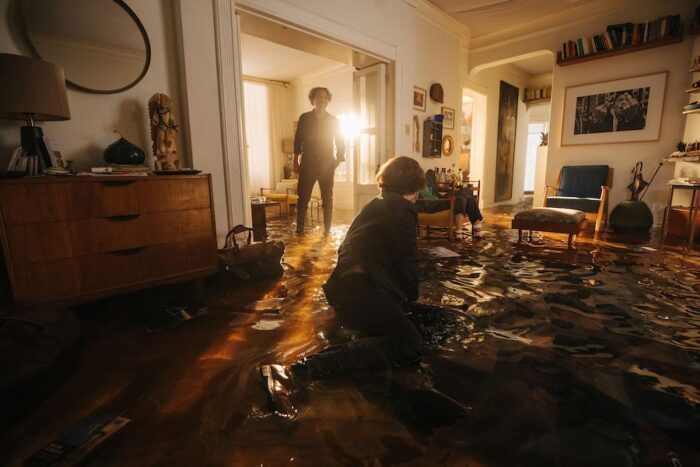Bardo, False Chronicle of a Handful of Truths review: Stunningly self-indulgent

Review Overview
Outrageous self-indulgence
2Outrageous running time
2Moments of brilliance
8Rating
Matthew Turner | On 16, Dec 2022
Director: Alejandro González Iñárritu
Cast: Daniel Giménez Cacho, Griselda Siciliani, Ximena Lamadrid, Iker Solano, Luz Jiménez, Luis Couturier, Andrés Almedia
Certificate: 15
Perhaps inspired by the experiences of his fellow countryman Alfonso Cuarón (Roma), director Alejandro González Iñárritu has partnered with Netflix to produce this staggering epic of self-reflection, a thinly veiled trawl through his own life and career. Truth be told, the resulting film is something of a slog at nearly three hours, but it does contain the occasional moment of brilliance, including some images you won’t soon forget.
Daniel Giménez Cacho plays 60-something Silverio Gama, a renowned Mexican journalist and documentary filmmaker who’s spent the last 20 years of his life living in Los Angeles with his wife, Camilla (Ximena Lamadrid), and his 17-year-old son, Lorenzo (Íker Sánchez Solano). When he’s asked to return to Mexico City to accept a prestigious lifetime achievement award, Silverio spirals into a full-blown existential crisis, which he experiences as a surreal journey through his life and career, with fantasy and reality constantly flowing into each other.
The sheer level of artistry on display is never in doubt, as Bardo moves effortlessly from one sequence to another, heightened by characteristically stunning camerawork from cinematographer Darius Khondji. The problem is that the entire film is outrageously self-indulgent from beginning to end – it’s essentially like witnessing a protracted act of self-love… for three hours.
Clearly influenced by Fellini’s classic 8½, Bardo draws at least partially on Iñárritu’s own experiences, especially when it comes to his conflicted feelings for his home country – a late sequence involving Silverio losing his temper with a passport control officer (for daring to suggest that his visa status doesn’t mean that he can call America “home”) is particularly telling.
Unfortunately, the central conceit can’t sustain the film’s arse-numbing 174 minute running time, not least because there are several stretches where nothing happens. Whether the film would have been less of a slog with an hour cut from it is open for debate but, as things stand, it’s a punishing way to spend three hours.
Admittedly, some of the fault lies with Daniel Giménez Cacho. He has a laid-back, hangdog charm that rather backfires here, as it makes Silverio entirely too passive in the unfolding events of his own life – even out-and-out tragedies are just casually shrugged off, resulting in a lack of overall emotion.
In fairness, the film is clearly aware of its own problems, as they’re repeatedly articulated throughout, most notably in a stand-out sequence where Silverio’s former colleague – now a tabloidy talk show host – taunts him with his flaws live on air. It also transpires that Silverio has made a movie that is evidently very similar to Bardo (the word refers to a Buddhist concept that is somewhere between Limbo and Purgatory), because the film’s biggest ego-stroking moments (such as an imagined conversation with Hernán Cortés) also come in for direct criticism.
For all Bardo’s faults, however, there are undeniable moments of brilliance. Highlights include a surreal opening involving a baby deciding it doesn’t want to be born and being pushed back where it came from, a masturbatory fantasy sequence involving a TV personality and some fried eggs, and a sequence where water spills out of a plastic bag, flooding first a train carriage and later Silverio’s living room as the memory spills into reality.
This review was originally published during the 2022 Venice Film Festival


















